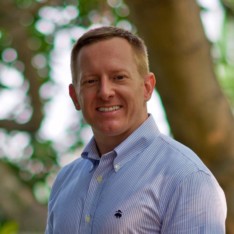Is There Something Public About Banking?
I recently had the pleasure of hosting Wharton’s Peter Conti-Brown at Kenyon College. During his talk on The Power and Independence of the Federal Reserve, Peter argued in favor of the Fed’s role of regulating and overseeing banks on the grounds that there is “something public about banking.” I found his comment curious at the time and, fortunately, had the opportunity to follow up with him later.
Let’s start with what I found curious about the remark that there is something public about banking. When economists hear the word “public,” they assume one is referring to some good or service that is non-rivalrous and non-excludable — or, at the very least, that some externality exists. Is banking public in this sense? It would seem to be rivalrous. A teller handling my deposit cannot simultaneously handle yours. A loan officer considering the risk of my business plan cannot simultaneously evaluate the risk of yours. It would also seem to be excludable — though perhaps not perfectly so. It can turn depositors away. It can refuse to lend to those it deems unworthy. So, banking does not seem to meet the standard definition of “public,” at least as economists use the term.
One might argue — as I believe Peter would — that there are spillovers. Perhaps some benefits of banking accrue to those who are not parties in the transactions between a bank and its customers. By more effectively channeling savings into investment projects, a bank increases the wealth of society. That increase in wealth might improve opportunities for those well beyond the bank’s customers. And, if so, there is some scope for regulation to promote financial intermediation.
Upon pressing Peter, however, I came to understand that he was making a very different argument. Rather than arguing that banking was public in the economic sense, Peter was merely claiming that banking and politics were intricately intertwined. A quick glance at the history of the United States — from the colonies, to the First and Second Banks of the United States, to the Federal Reserve — suggests he is probably right about that. But his normative conclusion (that the Fed should regulate and oversee banks) does not necessarily follow from his claim that banking and politics are intricately intertwined.
Peter and I agree on the description of reality: banking and politics are intricately intertwined today and have been for a very long time. The relevant questions are (1) whether disentangling banking and politics would be desirable and, if so, (2) whether disentangling banking and politics is possible.
When economists like me hear a lawyer and historian like Peter say there is something public about banking, they assume the speaker is saying no to question 1: No, it is not desirable. To disentangle banking and politics would makes us worse off because, left to its own devices, a bank will not channel savings into investment as well as it is capable of doing. Regulation and supervision can improve matters. In fact, however, Peter is answering no to question 2: No, it is not possible to disentangle banking and politics. They have always been intertwined. They will always be intertwined. Such is life.
If Peter is correct, and banking and politics are necessarily intertwined, our hands are tied. There is little to do but accept that we live in a world of the second best.
But what if Peter is wrong? Or, perhaps more plausibly, what if he is only correct given the current state of people’s understanding? If that is the case, persuading others that banking and politics are necessarily intertwined discourages them from ever considering whether disentangling banking and politics would be desirable. And if they do not consider whether it is desirable, they will never learn that things might be better (if things might be better). And if they never learn that things might be better, they will never attempt to innovate around the problem. Banking and politics will remain intricately intertwined.
Peter is right about the historical record. Banking and politics are intricately intertwined. But the historical record is also marked by countless individuals doing what those in previous generations thought could not be done. Harnessing electricity? Impossible. Aviation? Impossible. Open heart surgery? Impossible. The list goes on. Fortunately, in those cases, we were not content to accept what was. Instead, a few among us considered what might be and then worked out a way to make it so.
A purely private banking system is impossible today. It is worth considering for tomorrow.











